Agricultural Modernization Accelerated by Lida Group’s Innovative Steel Frame Building Solutions for Modern Farm Houses
2025-Aug-26 10:20:24
By Admin
1. Introduction
In the global pursuit of sustainable and efficient agricultural development, agricultural modernization has emerged as a core driver of food security, rural economic growth, and environmental stewardship. A critical yet often overlooked component of this modernization journey is the quality and functionality of farm houses and supporting agricultural structures. Traditional farm houses, typically constructed using brick, concrete, or wood, often fall short of meeting the evolving needs of contemporary agriculture. They are frequently limited by poor spatial flexibility, low resistance to environmental stressors (such as extreme weather or pests), high maintenance costs, and long construction timelines—all of which hinder the ability of farmers to adopt advanced agricultural practices.
Against this backdrop, Lida Group, a global leader in innovative steel structure design and construction, has stepped forward with transformative steel frame building solutions tailored specifically for modern farm houses. Leveraging decades of expertise in steel engineering, the company has reimagined farm house design to align with the demands of modern agriculture. Unlike conventional construction methods, Lida Group’s steel frame solutions prioritize durability, flexibility, sustainability, and cost-effectiveness—qualities that are essential for supporting mechanized farming, precision agriculture, and integrated rural livelihoods. This article explores how Lida Group’s innovative steel frame building solutions are addressing the limitations of traditional farm houses, empowering farmers to enhance productivity, and accelerating the pace of agricultural modernization worldwide.

2. The Role of Modern Farm Houses in Agricultural Modernization
To fully grasp the impact of Lida Group’s solutions, it is first necessary to understand why modern farm houses are a linchpin of agricultural modernization. In traditional agricultural systems, farm houses primarily served as residential spaces for farmers and their families, with minimal integration into farming operations. However, as agriculture evolves toward mechanization, digitization, and diversification, farm houses have evolved into multi-functional hubs that support a range of activities critical to modern farming.
Modern farm houses now need to accommodate:
- Storage for agricultural equipment: Tractors, harvesters, drones, and other mechanized tools require secure, weatherproof spaces to prevent damage and extend their lifespan.
- Controlled-environment storage for crops and livestock feed: Many high-value crops (such as fruits, vegetables, and grains) and livestock feed need temperature- and humidity-controlled storage to reduce spoilage and maintain quality—a key factor in improving post-harvest efficiency.
- On-site processing areas: Small-scale processing (e.g., cleaning, sorting, or packaging of crops) at the farm level reduces transportation costs and preserves the freshness of products, adding value to agricultural output.
- Livestock housing extensions: For mixed-farming operations, farm houses often need to connect to livestock enclosures that prioritize animal welfare, biosecurity, and easy cleaning—all of which contribute to better livestock health and higher productivity.
- Living spaces that align with rural livelihoods: Modern farmers also seek comfortable, energy-efficient living spaces that integrate with their work, reducing the need for long commutes and enhancing work-life balance.
Beyond functionality, modern farm houses play a vital role in promoting sustainability—a central pillar of agricultural modernization. Structures that use eco-friendly materials, reduce energy consumption, and minimize waste align with global efforts to mitigate the environmental impact of agriculture. Additionally, durable farm houses that withstand extreme weather (such as hurricanes, heavy snow, or droughts) enhance the resilience of agricultural systems, protecting farmers’ investments and ensuring consistent food production even in the face of climate change.
Traditional farm houses, however, struggle to meet these demands. Brick-and-concrete structures are rigid, making it difficult to reconfigure spaces for new equipment or changing farming needs. Wooden structures are prone to rot, pest infestations, and fire risks, requiring frequent repairs. Both materials also have long construction times, delaying farmers’ ability to adopt new practices. This gap between traditional construction and modern agricultural needs has created an opportunity for innovative solutions—one that Lida Group’s steel frame building systems are uniquely positioned to fill.

3. Lida Group’s Steel Frame Building Solutions: Core Innovations for Modern Farm Houses
Lida Group’s steel frame building solutions for modern farm houses are built on three core pillars: material excellence, structural flexibility, and adaptive design. These pillars work together to address the specific challenges of agricultural environments and support the multi-functional needs of modern farmers.
3.1 High-Quality Steel Materials: Durability and Resilience for Agricultural Environments
At the heart of Lida Group’s solutions is the use of premium steel materials that are engineered to withstand the unique stressors of agricultural settings. Unlike conventional steel used in generic construction, Lida Group sources steel grades that prioritize corrosion resistance, impact strength, and tolerance to temperature fluctuations—all critical for farm houses that are exposed to moisture (from irrigation or livestock), chemicals (such as fertilizers or pesticides), and extreme weather.
Two key steel grades used in Lida Group’s farm house solutions are:
- S355JR Steel: A structural steel with a minimum yield strength of 355 MPa, S355JR offers exceptional durability and ductility. Its ability to resist deformation under heavy loads (such as the weight of farm equipment or stored grains) makes it ideal for building frames, storage areas, and equipment bays. Additionally, S355JR exhibits good weldability, allowing for easy customization of structures without compromising strength.
- Corrosion-Resistant Galvanized Steel: For components exposed to high moisture (e.g., livestock housing extensions or crop storage areas), Lida Group uses hot-dip galvanized steel. This process involves coating steel with a layer of zinc, which acts as a barrier against rust and corrosion. In agricultural environments—where exposure to water, manure, or humidity is common—hot-dip galvanized steel extends the lifespan of farm houses to 30–50 years, significantly reducing maintenance costs compared to wooden or uncoated steel structures.
To further enhance durability, Lida Group applies a polyester powder coating to steel surfaces in high-exposure areas (such as exterior walls or roof panels). This coating is resistant to fading, chipping, and chemical damage, ensuring that farm houses maintain their structural integrity and aesthetic appeal even after years of exposure to fertilizers, pesticides, or harsh sunlight.
3.2 Modular and Flexible Structural Design: Adapting to Changing Farming Needs
One of the most significant advantages of Lida Group’s steel frame solutions is their modularity—a feature that addresses the dynamic needs of modern agriculture. Unlike rigid brick-or-concrete structures, steel frames are composed of prefabricated modules that can be easily assembled, disassembled, or reconfigured as a farmer’s operations grow or change.
Lida Group’s modular design offers several key benefits for modern farm houses:
- Customizable Space Allocation: Farmers can choose from a range of module sizes to create dedicated zones for living, equipment storage, crop processing, and livestock care. For example, a small-scale vegetable farmer might start with a 150-square-meter farm house that includes a 50-square-meter living area, a 60-square-meter equipment bay, and a 40-square-meter crop storage room. As the farm expands, additional modules can be added to create a larger processing area or extra livestock enclosures—without the need for full-scale demolition or reconstruction.
- Easy Integration of Agricultural Technologies: Modern farming relies on technologies such as irrigation systems, climate-control units (for greenhouses or storage), and solar panels. Lida Group’s steel frames are designed with pre-installed utility channels (for electrical wiring, water pipes, and ventilation) that allow for seamless integration of these technologies. For instance, solar panels can be mounted directly on the steel roof without damaging the structure, and climate-control systems can be connected to the frame’s ventilation channels to maintain optimal temperatures in crop storage areas.
- Lightweight yet Strong Construction: Steel frames are significantly lighter than concrete or brick structures, reducing the need for heavy foundations. This not only lowers construction costs but also makes the structures suitable for a wide range of agricultural landscapes—including areas with soft soil or sloped terrain where traditional foundations would be impractical. Despite their light weight, steel frames offer exceptional load-bearing capacity: a typical Lida Group steel frame farm house can support the weight of heavy equipment (such as tractors) on upper floors or roof-mounted solar panels, maximizing the use of vertical space.
3.3 Climate-Resilient Design: Protecting Against Extreme Weather
Climate change has increased the frequency of extreme weather events—such as hurricanes, heavy rainfall, snowstorms, and heatwaves—that pose significant risks to agricultural infrastructure. Lida Group’s steel frame farm houses are engineered with climate resilience in mind, ensuring that they protect farmers’ homes, equipment, and crops even in the harshest conditions.
Key climate-resilient features include:
- Wind-Resistant Frames: Lida Group’s steel frames use moment-resisting connections and reinforced roof trusses that can withstand wind speeds of up to 150 km/h (93 mph)—a critical feature for farms in hurricane-prone regions (such as Southeast Asia or the Caribbean). The trusses are designed with a triangular structure that distributes wind loads evenly across the frame, preventing structural damage.
- Snow Load Capacity: For farms in temperate or cold regions (such as Northern Europe or North America), Lida Group’s roof designs are optimized to handle heavy snow loads. The steel roof panels are sloped at an angle of 25–30 degrees to facilitate snow runoff, and the underlying trusses are reinforced to support snow weights of up to 1.5 kN/m² (equivalent to approximately 15 cm of wet snow).
- Heat and Moisture Control: In hot and humid regions (such as sub-Saharan Africa or Southeast Asia), Lida Group integrates thermal insulation and vapor barriers into the steel frame design. The insulation reduces heat transfer from the exterior to the interior, keeping living spaces and crop storage areas cool. The vapor barrier prevents moisture buildup inside the structure, which can lead to mold growth or crop spoilage. For cold regions, the insulation also helps retain heat, reducing energy costs for heating systems.
- Flood Resistance: For farms in low-lying or flood-prone areas, Lida Group offers elevated steel frames that raise the farm house above typical flood levels. The frames are mounted on concrete piles driven deep into the ground, ensuring stability even during floods. Additionally, the steel components are corrosion-resistant, preventing damage from floodwaters that may contain salt or other contaminants.
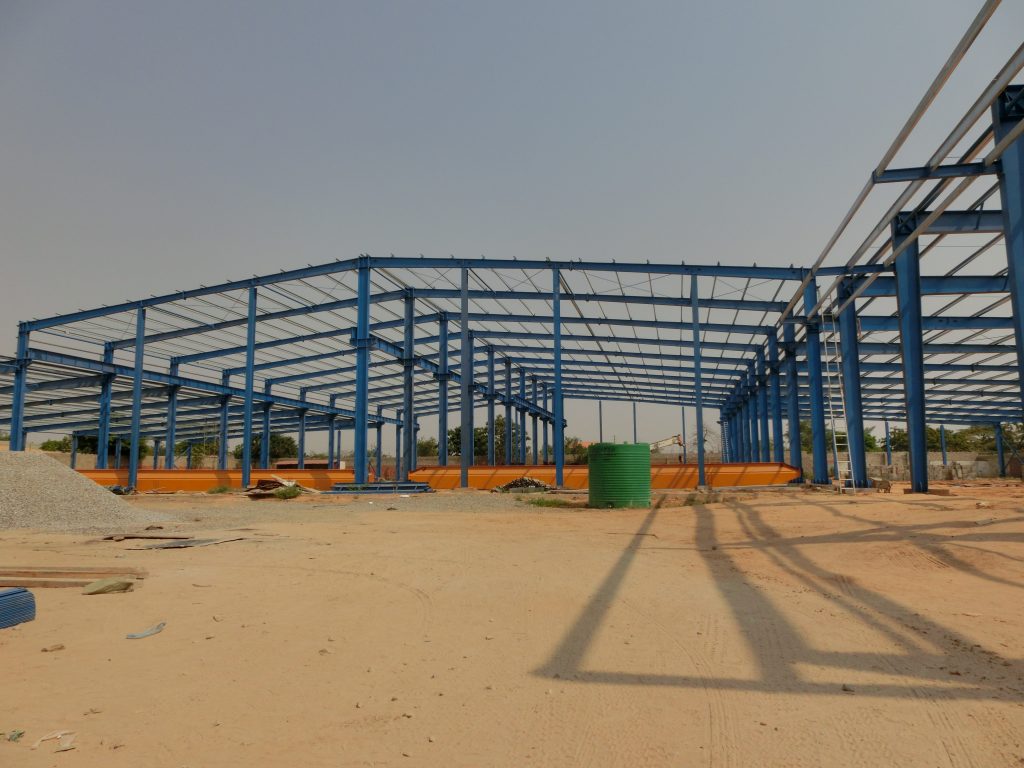
4. Manufacturing and Construction Processes: Efficiency and Quality Assurance
Lida Group’s commitment to delivering high-quality modern farm houses extends beyond design to its manufacturing and construction processes. The company uses advanced technologies and rigorous quality control measures to ensure that each steel frame solution is produced efficiently, consistently, and to the highest standards.
4.1 Prefabrication in Controlled Factory Environments
Lida Group manufactures all steel frame components in state-of-the-art, climate-controlled factories—a departure from traditional on-site construction that relies on weather conditions. This prefabrication approach offers several advantages:
- Precision and Consistency: Using CNC (Computer Numerical Control) cutting and drilling machines, Lida Group produces steel components with tolerances of less than 1 mm. This precision ensures that all modules fit together seamlessly during on-site assembly, reducing the need for on-site modifications that can delay construction and compromise quality.
- Reduced Construction Time: Prefabrication allows for parallel processing: while steel components are being manufactured in the factory, site preparation (such as foundation work) can be completed simultaneously. As a result, a typical 200-square-meter steel frame farm house can be constructed in 4–6 weeks—compared to 12–16 weeks for a traditional brick-and-concrete structure. This faster timeline means farmers can start using their new farm houses sooner, accelerating their adoption of modern agricultural practices.
- Minimized Waste: Factory prefabrication reduces material waste by up to 30% compared to on-site construction. CNC machines cut steel with minimal offcuts, and any excess material is recycled within the factory. This not only lowers costs for farmers but also aligns with Lida Group’s commitment to sustainability.
4.2 Rigorous Quality Control Measures
Every step of Lida Group’s manufacturing and construction process is subject to strict quality control to ensure that the final product meets international standards. Key quality control measures include:
- Material Testing: All steel used in Lida Group’s farm houses undergoes mechanical property testing (such as tensile strength and impact resistance) and chemical composition analysis to verify that it meets the required standards (e.g., S355JR or galvanized steel specifications). Only materials that pass these tests are used in production.
- Component Inspections: After manufacturing, each steel component is inspected for dimensional accuracy, surface defects (such as cracks or bends), and coating quality (for galvanized or powder-coated parts). Components that fail inspection are either reworked or discarded.
- On-Site Quality Checks: During on-site assembly, Lida Group’s construction teams conduct daily inspections to ensure that modules are installed correctly, connections are secure, and all systems (such as electrical or plumbing) are functioning properly. A final inspection is conducted before handover to the farmer, covering structural integrity, safety features, and compliance with local building codes.
4.3 Sustainable Construction Practices
Sustainability is a core focus of Lida Group’s construction processes, reflecting the growing emphasis on eco-friendly agriculture. Key sustainable practices include:
- Use of Recycled Steel: Lida Group incorporates recycled steel into its frame components wherever possible. Recycled steel has the same strength and durability as virgin steel but requires 74% less energy to produce, reducing carbon emissions by up to 58% per ton of steel.
- Eco-Friendly Coatings: The polyester powder coatings used on steel components are free of volatile organic compounds (VOCs), which are harmful to the environment and human health. Unlike traditional paint, powder coatings do not release toxic fumes during application or curing.
- Energy-Efficient Design: Lida Group’s farm houses are designed to reduce energy consumption. For example, the thermal insulation used in walls and roofs minimizes the need for heating or cooling, and the pre-installed utility channels allow for easy integration of renewable energy systems (such as solar panels or wind turbines).
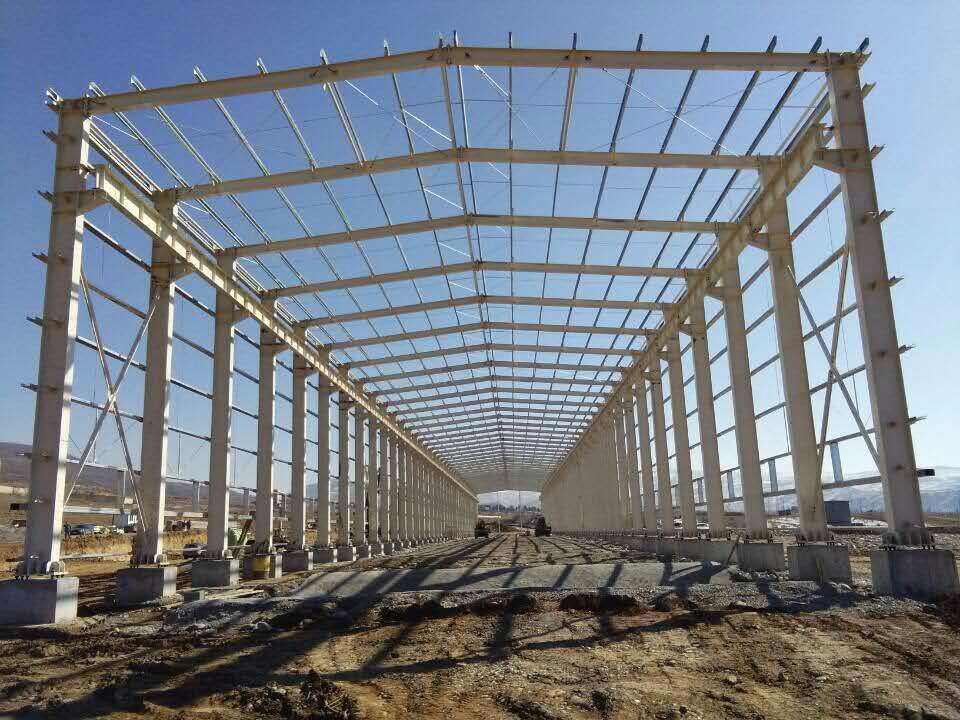
5. Case Studies: Lida Group’s Steel Frame Farm Houses in Action
To illustrate the real-world impact of Lida Group’s solutions, this section examines three case studies from different regions, each highlighting how steel frame farm houses have addressed specific agricultural challenges and accelerated modernization.
5.1 Case Study 1: Mixed-Farming Operation in Brazil
Brazil’s agricultural sector is a global leader in soybean, corn, and livestock production, but many small-to-medium-sized farmers struggle with outdated farm infrastructure that limits productivity. A family-owned mixed farm in Mato Grosso (a major agricultural state in Brazil) approached Lida Group to replace its aging wooden farm house, which was prone to termite infestations and could not accommodate the farm’s new tractor and crop storage needs.
Lida Group designed a 250-square-meter modular steel frame farm house tailored to the farm’s mixed operations. The structure included:
- A 80-square-meter living area with three bedrooms, a kitchen, and a living room, insulated to withstand Mato Grosso’s hot, humid climate.
- A 100-square-meter equipment bay with a high ceiling (4.5 meters) to accommodate the farm’s new tractor and harvester, and pre-installed electrical outlets for charging equipment.
- A 70-square-meter crop storage room with climate control (maintaining a temperature of 20–22°C and humidity of 60–65%) to store soybeans and corn, reducing post-harvest losses.
The farm house was constructed in just 5 weeks, and since its completion in 2021, the farm has seen significant improvements:
- Post-harvest losses for soybeans have decreased from 15% to 5%, as the climate-controlled storage preserves crop quality.
- The equipment bay has protected the tractor and harvester from rain and pests, extending their lifespan by an estimated 3–5 years and reducing maintenance costs by 20% annually.
- The modular design has allowed the farm to add a 50-square-meter livestock enclosure extension in 2023, enabling the family to expand their cattle-raising operations without rebuilding the entire structure.
The farmer noted: “Our old wooden house was a constant source of stress—we were always repairing termite damage or worrying about our equipment getting wet. The steel frame house has given us peace of mind and allowed us to focus on growing our business. We’ve been able to adopt new farming techniques because we have the space and infrastructure to support them.”
5.2 Case Study 2: Fruit Farm in Turkey
Turkey is a major producer of fruits such as apples, cherries, and apricots, but many fruit farms face challenges with crop storage and on-site processing. A fruit farm in the Aegean region (known for its cherry production) needed a farm house that could store freshly harvested cherries and include a small processing area for sorting and packaging—critical for maintaining the fruit’s freshness and maximizing market value.
Lida Group’s solution was a 180-square-meter steel frame farm house with:
- A 60-square-meter cold storage room (maintaining a temperature of 0–2°C) to store cherries, extending their shelf life from 3–5 days to 2–3 weeks.
- A 40-square-meter processing area with stainless steel countertops (for easy cleaning) and pre-installed water and electrical connections for sorting machines.
- A 80-square-meter living area with energy-efficient insulation to handle the Aegean region’s hot summers and mild winters.
The farm house was completed in 6 weeks, and since 2022, it has transformed the farm’s operations:
- The cold storage room has allowed the farm to sell cherries to buyers in distant markets (such as Europe) instead of being limited to local sales, increasing revenue by 35%.
- The on-site processing area has reduced the need to transport cherries to external facilities, cutting transportation costs by 25% and minimizing damage to the fruit during transit.
- The steel frame’s resistance to humidity has prevented mold growth in the storage room, which was a common issue with the farm’s previous concrete storage space.
The farm owner commented: “Cherries are a delicate fruit—if we can’t store them properly, we lose a lot of money. The Lida Group house has solved that problem. We can now harvest more cherries and sell them at a better price because they stay fresh longer. The processing area has also made our work easier and faster.”
5.3 Case Study 3: Livestock Farm in Canada
Canada’s livestock farms (particularly in regions like Alberta) face harsh winter conditions, with heavy snowfall and temperatures dropping to -30°C. A cattle farm in Alberta needed a farm house that could withstand these conditions, provide comfortable housing for the farmer’s family, and include a connected livestock shelter to protect cattle from the cold.
Lida Group designed a 300-square-meter steel frame farm house with:
- A 120-square-meter living area with thick thermal insulation (R-value of 30) and a heating system connected to a solar panel array (installed on the steel roof) to reduce energy costs.
- A 180-square-meter livestock shelter connected to the living area via a covered walkway, with reinforced steel walls and a sloped roof (for snow runoff) to protect 50–60 cattle. The shelter also included a feeding system with pre-installed electrical connections for automated feeders.
The farm house was built in 7 weeks (completed in late 2022), and it has proven highly resilient:
- During the 2022–2023 winter, the farm experienced snowfall of up to 60 cm, but the steel roof’s slope and reinforced trusses prevented snow accumulation and structural damage.
- The solar panel array on the roof has reduced the farm’s electricity costs by 40%, as it powers the heating system and automated feeders.
- The livestock shelter has kept cattle warm during extreme cold, reducing mortality rates by 50% compared to the farm’s previous open-air shelter.
The farmer said: “Winters here are tough, but the steel house has held up perfectly. We don’t have to worry about snow collapsing the roof or our cattle getting too cold. The solar panels have also saved us a lot of money on electricity. It’s the best investment we’ve made for our farm.”
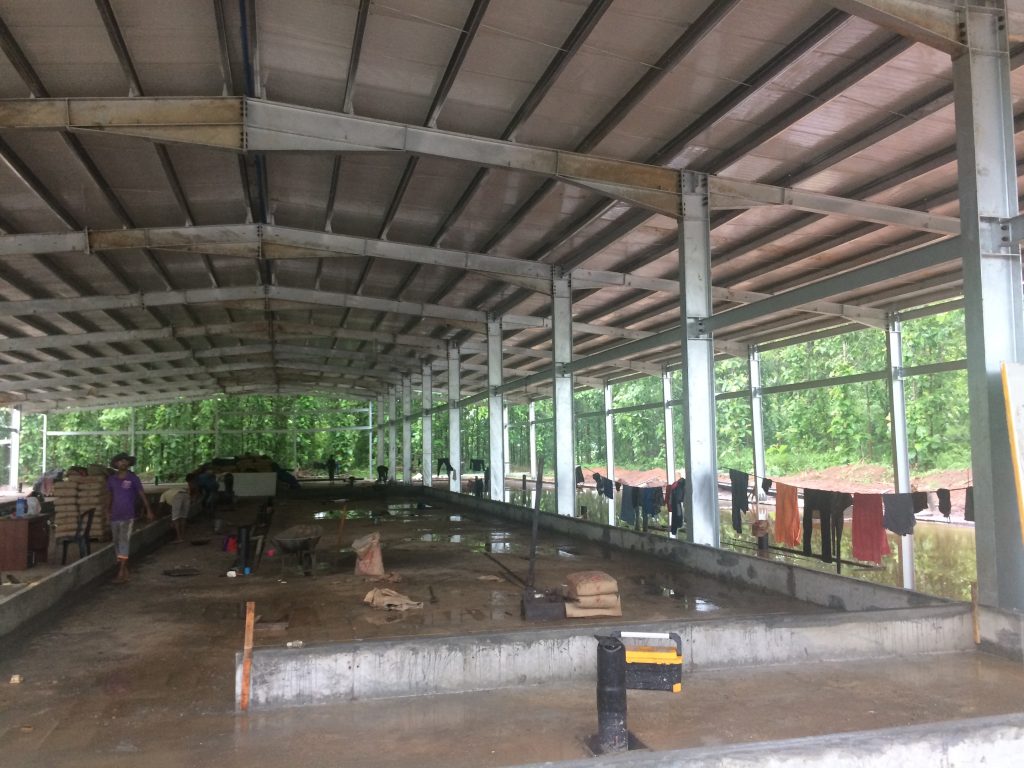
6. Industry Recognition and Certifications
Lida Group’s steel frame farm house solutions have received widespread recognition from the agricultural and construction industries, validating their quality, durability, and sustainability. The company holds several key certifications that demonstrate its commitment to excellence:
- ISO 9001:2015 Quality Management System Certification: This certification recognizes Lida Group’s ability to consistently deliver products and services that meet customer and regulatory requirements. It covers all aspects of the company’s operations, from design and manufacturing to construction and after-sales support.
- ISO 14001:2015 Environmental Management System Certification: This certification highlights Lida Group’s focus on sustainability, including its use of recycled materials, eco-friendly coatings, and energy-efficient processes.
- CE Certification: For farm houses sold in the European Union, Lida Group’s steel frame solutions meet the CE mark’s requirements for safety, health, and environmental protection. This includes compliance with EU standards for structural strength (EN 1090) and fire resistance (EN 13501).
- AWS D1.1 Structural Welding Code Certification: This certification ensures that the welding of steel components in Lida Group’s farm houses meets the highest standards for strength and durability, critical for withstanding heavy loads and extreme weather.
In addition to certifications, Lida Group has received industry awards for its innovative solutions. In 2023, the company won the Global Agricultural Infrastructure Innovation Award for its steel frame farm house design in Brazil, recognized for its ability to support mixed farming and improve productivity. In 2024, it received the Sustainable Construction Award for its use of recycled steel and eco-friendly practices in Turkey’s fruit farm project.
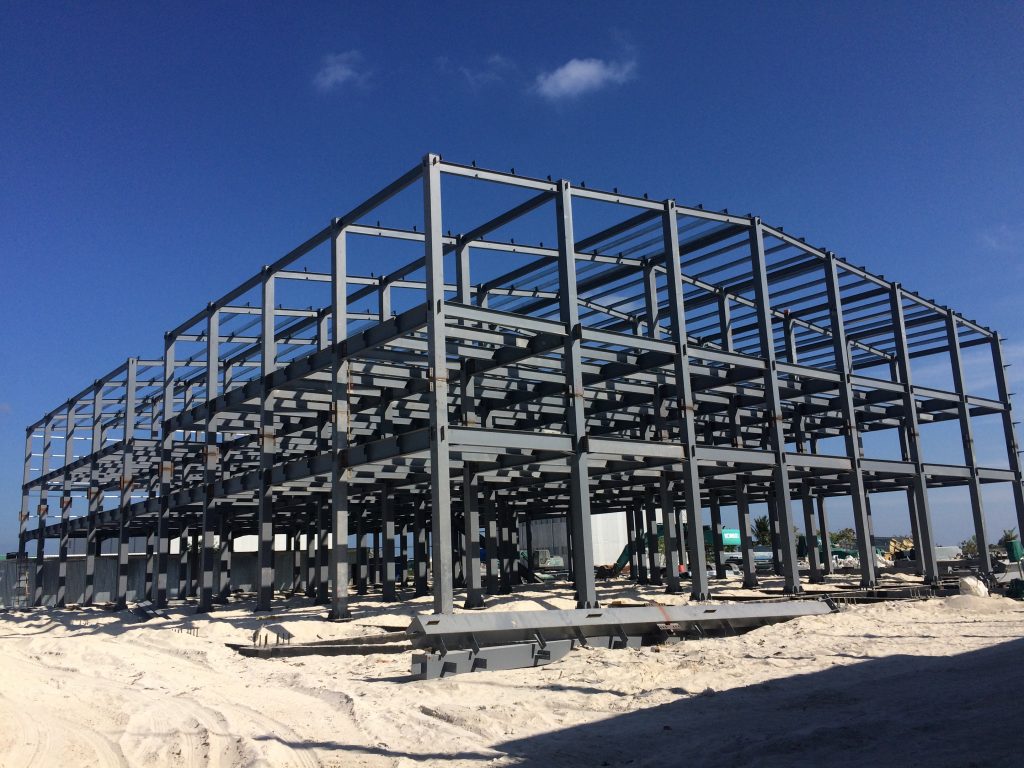
7. The Future of Agricultural Housing: Lida Group’s Ongoing Innovations
As agricultural modernization continues to evolve, Lida Group is committed to staying at the forefront of innovation, developing new steel frame solutions that address emerging trends in agriculture. Key areas of focus for the company’s research and development (R&D) team include:
7.1 Integration of Smart Agricultural Technologies
The future of agriculture is increasingly digital, with technologies such as IoT (Internet of Things) sensors, AI-powered crop monitoring, and automated livestock feeding systems becoming more common. Lida Group’s R&D team is working to integrate these technologies directly into its steel frame farm house designs. For example:
- IoT Sensor Integration: Steel frames will include built-in mounting points for sensors that monitor temperature, humidity, and crop quality in storage areas. These sensors will send real-time data to a farmer’s smartphone or computer, allowing for remote monitoring and quick adjustments to climate control systems.
- AI-Powered Energy Management: Lida Group is developing smart energy systems that use AI to optimize the use of solar panels, wind turbines, and battery storage in farm houses. This will further reduce energy costs and make farm houses more self-sufficient.
7.2 Advanced Steel Alloys for Extreme Environments
To expand its solutions to even more challenging agricultural regions (such as deserts or tropical rainforests), Lida Group is collaborating with steel manufacturers to develop advanced alloys. These alloys will offer enhanced resistance to extreme temperatures (up to 50°C in deserts or high humidity in rainforests) and corrosion from saltwater (for coastal farms). Early tests of a new alloy (dubbed “AgriSteel X”) show that it can withstand corrosion in saltwater environments for up to 60 years—20 years longer than traditional galvanized steel.
7.3 Circular Economy Practices
Lida Group is also exploring ways to make its steel frame farm houses more circular, ensuring that they can be easily recycled or repurposed at the end of their lifespan. The company’s R&D team is working on modular designs that allow components to be disassembled and reused in new structures, reducing waste and minimizing the environmental impact of deconstruction. Additionally, Lida Group is developing partnerships with recycling companies to ensure that steel components from old farm houses are recycled into new steel products.
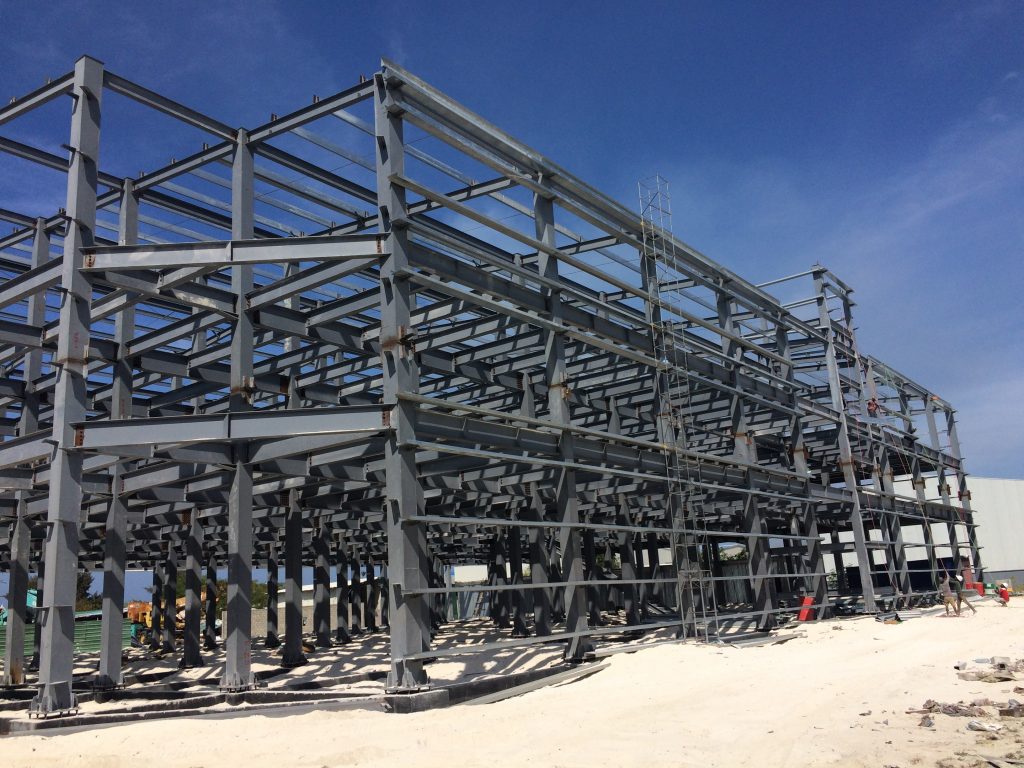
8. Conclusion
In conclusion, Lida Group’s innovative steel frame building solutions for modern farm houses are playing a pivotal role in accelerating agricultural modernization. By addressing the limitations of traditional farm houses—such as poor durability, inflexibility, and high maintenance costs—these solutions are empowering farmers to adopt modern agricultural practices, enhance productivity, and build more resilient and sustainable farming operations.
The core strengths of Lida Group’s solutions—high-quality steel materials, modular design, climate resilience, and sustainable construction—align perfectly with the needs of contemporary agriculture. As demonstrated by the case studies in Brazil, Turkey, and Canada, steel frame farm houses are not just structures; they are enablers of agricultural growth, helping farmers store crops more effectively, protect equipment, integrate new technologies, and withstand extreme weather.
Lida Group’s industry certifications and awards further validate the quality and impact of its solutions, ensuring that farmers can trust in the durability, safety, and sustainability of their farm houses. Looking to the future, the company’s ongoing innovations—such as integrating smart technologies, developing advanced steel alloys, and promoting circular economy practices—will continue to push the boundaries of what modern farm houses can achieve, further accelerating agricultural modernization worldwide.
For farmers, agricultural businesses, and policymakers seeking to advance sustainable and efficient agriculture, Lida Group’s steel frame farm house solutions offer a practical, cost-effective, and future-proof investment. By choosing these solutions, farmers are not just building a house—they are building the foundation for a more productive, resilient, and sustainable agricultural future.
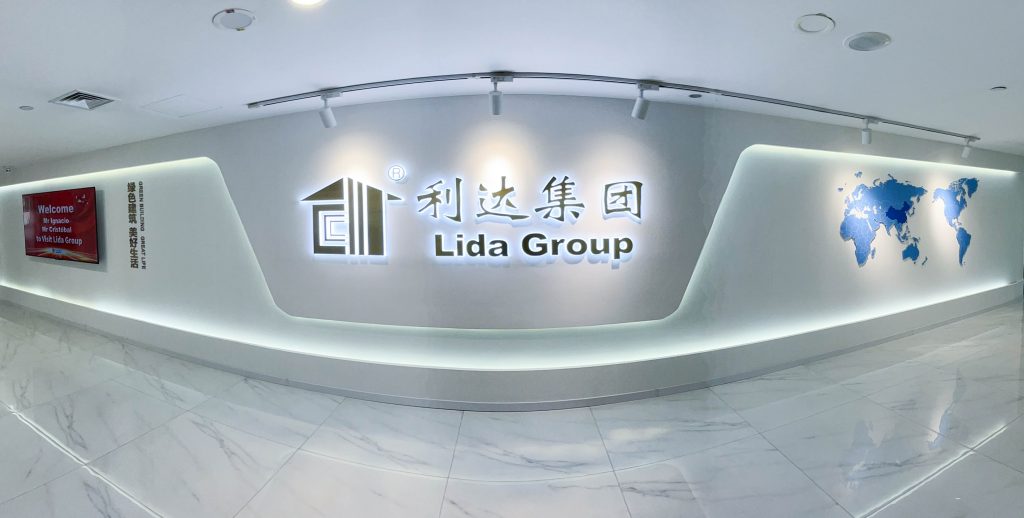
Related news
-
Lida Group Sets a New Industry Standard for Durability with Its High-Quality Steel Structure Warehouse Designs.
2025-08-26 10:06:38
-
Cost-Effective Expansion: Lida Group's Prefab Building Approach Cuts Temporary Sandwich House Construction Time and Budgets
2025-08-25 17:25:38
-
Arctic-Grade Innovation: Lida Group's Insulated Prefab Building Kits Deliver Warm High Quality Mobile Houses.
2025-08-25 16:59:27
contact us
- Tel: +86-532-88966982
- Whatsapp: +86-13793209022
- E-mail: sales@lidajituan.com


